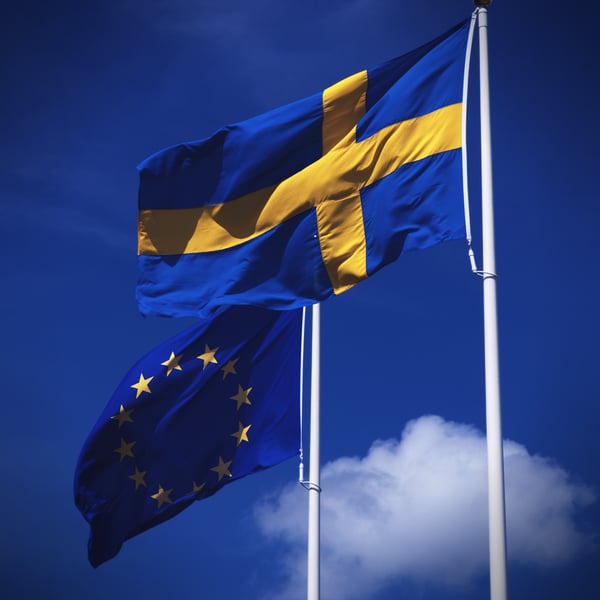Node Pole participates in EU parliament roundtable

On February 5th 2020, Patrik Öhlund, CEO Node Pole, was invited to participate in a seminar in the EU Parliament on digital infrastructure and energy consumption. He was joined by representatives from Microsoft and Vattenfall, as well as Swedish MEP Fredrick Federley (C).
The topic of the seminar was how an increase in transparency can reduce carbon emissions, and Node Pole was invited based on the launch a global certificate for Fossil Free Data last year. With the label, Node Pole seeks to increase knowledge regarding carbon emissions from data usage and raise the incentives for businesses to invest in fossil free data centers.
In the last decade, Node Pole has established itself as a key player in the industry by being the hub for a new industrial era in Sweden – data centers is now a Swedish base industry. In 2013, when Facebook had finished its establishment in Luleå, it was the first major data center investment in Sweden. By 2020, Amazon is located in Mälardalen, Google in Avesta and Microsoft in Gävle, Sandviken, and Staffanstorp. The datacenter boom has been intense in recent years and large investments continue across the country.
Sweden has come up at the center of this development due to the increasing digitization being a growing climate problem, not least because many data centers in the world are powered by fossil fuels such as coal. For example, by 2020, streaming video is expected to account for 80% of total Internet traffic. At present, the IT sector accounts for about a tenth of the world's energy consumption.
But the Internet is growing. The amount of data and information intensity is increasing and between 2017 and 2022, network traffic for streaming film and television is expected to double. For example, the streaming and downloads of the hit-single “Decpacito” consumed as much electricity as Chad, Guinea-Bissau, Somalia, Sierra Leone and the Central African Republic put together in a single year according to the EU-funded research project Eureka.
Storing data requires a lot of energy and many data centers in the world are powered by fossil fuels. Thus, how we manage data and how data centers are being run is an important part of achieving the climate goals.
Sweden has optimal conditions for sustainable data center operations, with a large proportion of renewable energy enabling fossil free plants, extremely stable electricity supply, competitive prices, and high competence. In addition, Sweden is both politically and geologically stable. The Government and the Swedish parliament have also prioritized this new industrial era.
Read more about the Fossil Free Data Certificate at www.fossilfreedata.com
Contact

